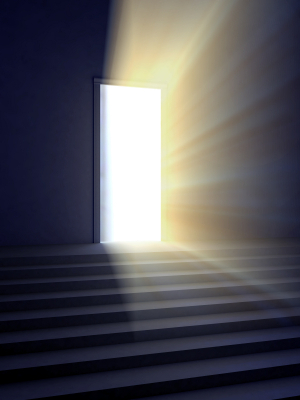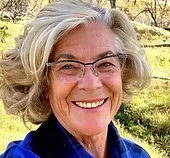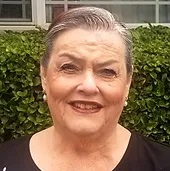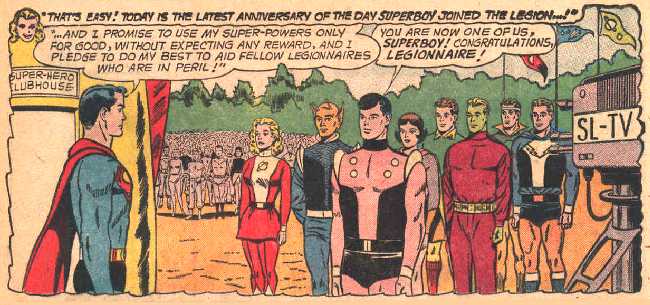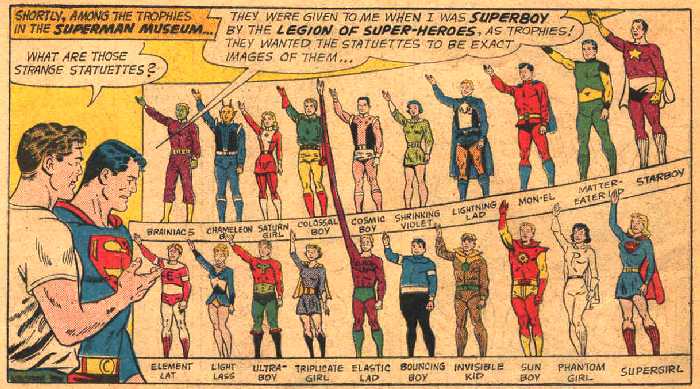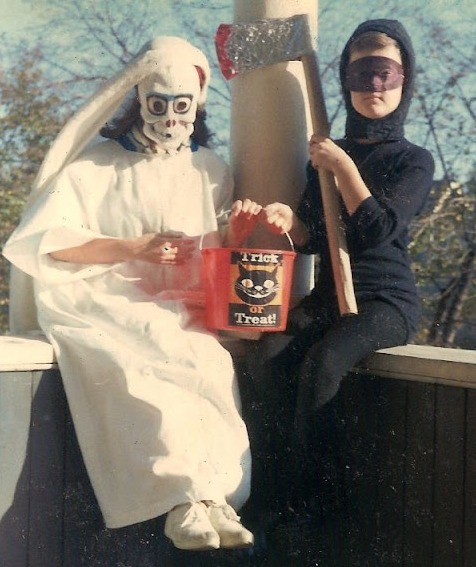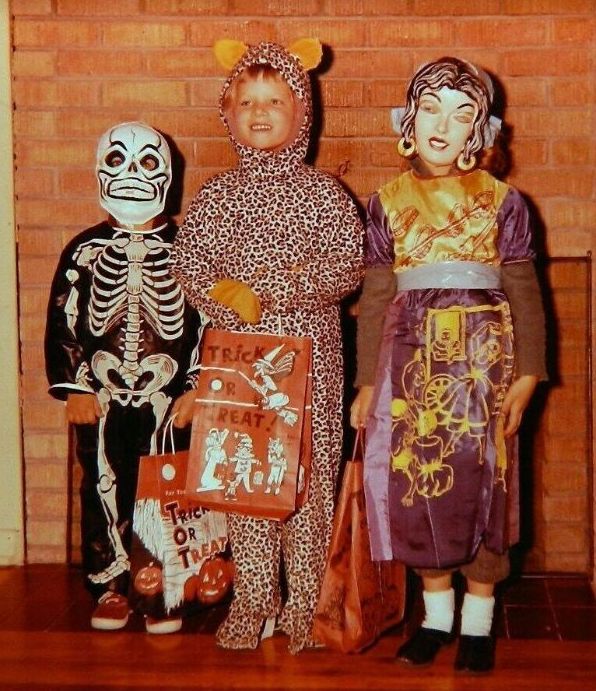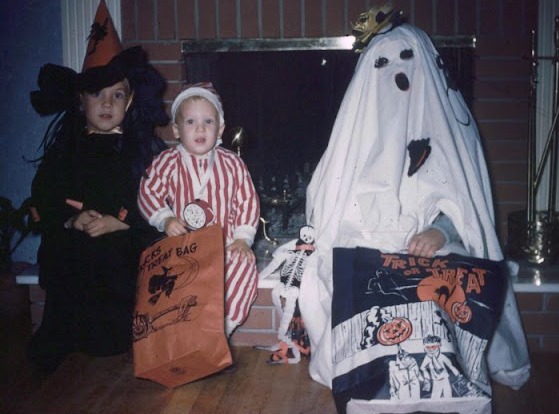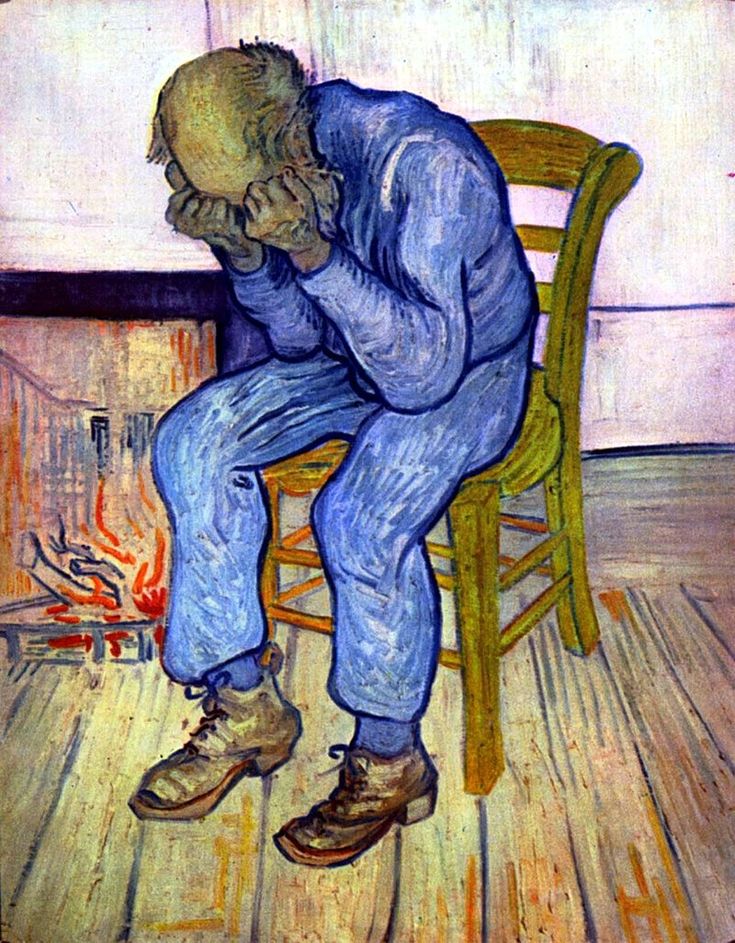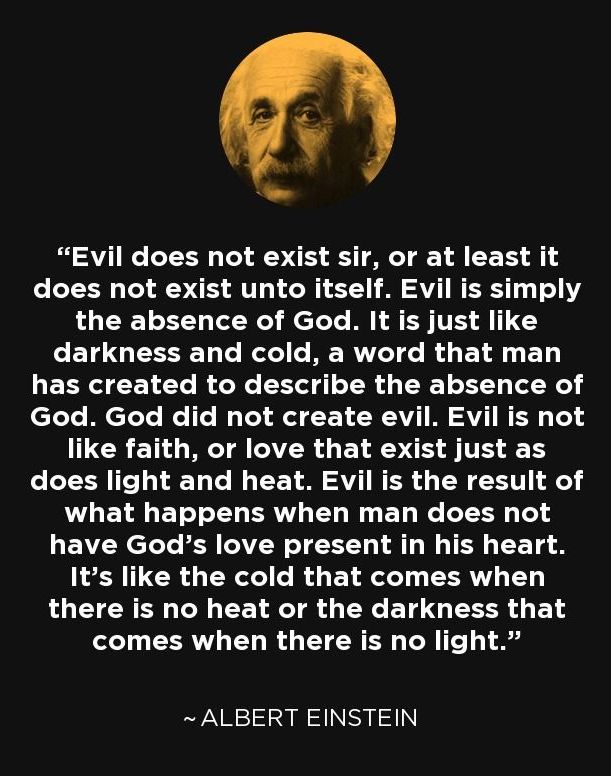|
home | what's new | other sites | contact | about |
||||||
|
Word Gems exploring self-realization, sacred personhood, and full humanity
Life & Death
Channeled information from the other side, as reported in “Thy Son Liveth: Messages From A Soldier To His Mother” (1920); also the basis of the movie “Rumors Of Angels” (2002), with Vanessa Redgrave: “Mother, the soul leaves the body as a boy jumps out of a school door; that is, suddenly, and with joy.”
"It is not so much what you will find when you come to this side of life as what you will bring with you... Sleep is the best definition of death I know anything about - just going to sleep unafraid to awake in a new and beautiful room, and to be satisfied... [On Earth] you are the apprentice to your own soul. Here you are the promoted individual... Bring all of your soul treasures - you will need them, your culture, your love of art, of music - all this you will use... Every want shall be satisfied. Material possessions you will not need... We are undisguised, for on our foreheads is the insignia of whatever we have gained in culture, love for humanity, charity, selflessness, energy and force, ambitions for the sake of others - all this is here waiting for us when we are given ... our Price, our Wage, whatever we have earned during our years of apprenticeship." Frederic W. H. Myers, Vanishing Night, transmitted to Juliet S. Goodenow, 1923
Editor's 1-Minute Essay: An Alien's TravelGuide to Planet Earth: Life, the Uncharted World The Scientific Evidence for the Afterlife 30 Reasons Why the Afterlife Evidence is Ignored or Rejected Ralph Waldo Emerson (1803–1882), essay “Immortality” Report: The Psychology Of Life Purpose: Do We Need One?
Johann Wolfgang von Goethe: "Sometimes our fate resembles a fruit tree in winter. Who would think that those branches would turn green again and blossom, but we hope it, we know it."
The following is spoken by Tim, in the afterlife, channeled information, as he communicated with his mortal friend, a New York licensed psychotherapist, August Goforth, author of, "The Risen." He was asked about the most important messages received from Tim: (1) “The very structure of the Intelligent Universe is light and music - singing, talking, and laughing. Life is real and death is not, so there is nothing to fear unless you fear life’s light-filled music. Death is not the end to life but another beginning, another birth. It is a door, a passage to more life, more than we could possibly imagine." (2) "As beings of light we continue on endlessly - our immortal experience. This realization is of immense importance, for we are literally having our immortal experience in this very moment. Immortality doesn’t begin after we transition to Risen, but commenced when we first arose on this world, fired into life with a Divine Spark, to awaken and breathe and move up and out into this world, our Earth." Andrew Jackson Davis: "Death does not change the character of a man, but simply strips off his masks and compels him to stand forth as he is, [as] he becomes after death the image of his own character." August Goforth: “The purpose of vibration is emotion. The purpose of emotion is movement (e-motion or energy-in-motion.) The purpose of movement is expansion, exploration and growth. The purpose of expansion, exploration and growth is play. The purpose of play is enjoyment — that is, to bring forth joy. The purpose of bringing forth joy is recreation. The purpose of re-creation is to experience Life.” Erich Fromm: "The main task in everyone's life is to bring himself to light." Gustav Theodor Fechner, The Little Book of Life after Death: “In the embryonic period it seemed to the child that the placenta was its body, and it was actually its special embryonic body, useless in another stage, and rejected as refuse at the moment of birth. Our [present mortal] body in human life is like a second envelope which is useless to the third life, and for this reason we reject it at the moment of our second birth. Human life as compared with the celestial is truly embryonic.” A note by Eliphas Levi, translator of Fechner’s book from the German.
Dr. Carl Wickland, "Gateway To Understanding," quoting an unidentified "T. May." "The wisest men are glad to die; no fear of death can touch a true philosopher. Death sets the soul at liberty to fly." Longfellow: “Life is real! Life is earnest! And the grave is not its goal; Dust thou art, to dust returnest, Was not spoken of the soul.” From “The New Revelation” (1918) by the great afterlife researcher, Sir Arthur Conan Doyle, of "Sherlock" fame: “I was in [medical] practice in Southsea [near Portsmouth, England] at this time [circa. 1880], and dwelling there was General Drayson, a man of very remarkable character, and one of the pioneers of Spiritualism in this country. To him I went with my difficulties [concerning how to make sense of various reports from the other side], and he listened to them very patiently. “He made light of my criticism of the foolish nature of many of these messages, and of the absolute falseness of some: ‘You have not got the fundamental truth into your head,’ said he. ‘That truth is, that every spirit in the flesh passes over to the next world exactly as it is, with no change whatever. This world is full of weak or foolish people. So is the next. You need not mix with them, any more than you do in this world. One chooses one's companions. ‘But suppose a man in this world, who had lived in his house alone and never mixed with his fellows, was at last to put his head out of the window to see what sort of place it was, what would happen? Some naughty boy would probably say something rude. Anyhow, he would see nothing of the wisdom or greatness of the world. He would draw his head in thinking it was a very poor place. ‘That is just what you have done. In a mixed seance, with no definite aim, you have thrust your head into the next world and you have met some naughty boys. Go forward and try to reach something better.’ “That was General Drayson's explanation, and though it did not satisfy me at the time, I think now that it was a rough approximation to the truth. These were my first steps in Spiritualism. I was still a sceptic, but at least I was an inquirer.”
Prof. Goldwin Smith, Toronto, Canada, in the New York Sun, Feb. 4, 1906: "Always we have to remember that our knowledge is bounded by our senses, and that we may be in a world quite other than that which sense reveals.” Dr. Charles Richet, Professor to the Faculty of Medicine, Paris, in Light, London, Feb. 4, 1906: "It is evident that our feeble intelligence, endowed with five senses of limited range, does not penetrate into all the forces of Nature. . . The truths — those surprizing, amazing, unforeseen truths — which our descendants will discover, are even now all around about us, staring us in the eyes, so to speak, and yet we see them not. . . . These truths, when they are better understood, will profoundly modify the puny notions we at present entertain concerning man and the universe." Sherwood Eddy, “You Will Survive After Death” (1950): “Because of the testimony of the human heart in all ages, I believe that man survives death. The assurance of immortality perhaps springs from the confidence of the human race in its own integrity and the validity of its aims and values. Human life on earth promises so much more than it attains that it is often left at death as a truncated, unsatisfied and incomplete fragment. If the universe is reasonable and beneficent, man’s value judgment has been that it will preserve the moral gains that are fittest to survive. The life beyond is the demand of our moral nature. Life’s vast aspirations and capacities, unfulfilled at death, lead many of us to believe in God, in freedom and immortality. The disparity between our potentialities and our present possibilities, between what we are and what we hope to be, can only be satisfied by a future life. Annihilation would seem to me to be an injustice and an insult to the race... I look upon death as a conquered foe, as a mere portal to an infinite and endless life or unending progress.” Sir Oliver Lodge, in a letter to J. Arthur Hill: “That the Cosmos is in some sense or other the ‘body‘ of God, or may be so regarded, seems to be more or less inevitable. That is, it is God’s mode of manifestation, or one of His modes. Just as our bodies are the chief ordinary mode of manifestation for us, though there may be telepathic and other methods which transcend the body…” Afterlife researcher, British Vice-Admiral William Usborne Moore, 1913: "Another good in spiritism is that it induces a calm and equable frame of mind, devoid of dogma, devoid of excessive ambition, or worry of any sort. A man acquires an inward conviction that nothing matters very much; this life is only a short disciplinary journey, which will assuredly lead to a better one if he does his best where he finds himself placed, and exercises sympathy and charity…To the spiritist death is no evil and is not feared, for he knows if he keeps himself in order he will be much better off on the other side. It is astonishing what unanimity there is among the spirits who are interrogated on this point. None wish to return; all I have seen or heard declare that their only cause for sorrow is the grief of those they have left behind." Sir William Barrett: “The great object of our life on Earth appears to be, on the one hand, the upbuilding, strengthening, and perpetuation of our separate and distinct personalities; and, on the other, the awakening and development in each of the consciousness of an underlying Unity, which links each person into a larger Personal Life common to all, 'in Whom we live and move and have our being'; in a word, the realisation of the fact that we are integral parts and members of one Body.” Lilian Whiting, “The World Beautiful”: “The one supreme purpose of the soul's sojourn in this world is to develop its spiritual powers in this complex plane of manifestation. Whatever circumstances and conditions conduce to this end are fortunate circumstances and conditions, no matter how difficult or how uncomfortable they are. Whatever circumstances hinder this development are unfortunate ones, no matter how alluring to the senses.” Hermann Hesse, Iris: “‘That’s how I feel,’ she said to Anselm in her voice that was as light as a bird, ‘whenever I smell a flower. Then my heart tells me each time that a memory of something extremely beautiful and precious is connected to the fragrance, something that had been mine long ago and became lost. It’s also the same with music, and sometimes with poems — all of a sudden something flashes, just for a moment, as if all at once I saw my lost home below in a valley, and then it immediately disappears and is forgotten. Dear Anselm, I believe that we are on earth for this purpose, for contemplating and searching and listening for lost remote sounds, and our true home lies behind them.’” Emerson: “The blazing evidence of immortality is our dissatisfaction with any other solution.” John Fiske: “I believe in the immortality of the soul as the supreme act of faith in the reasonableness of God’s work. Our firm faith, consisting of many interwoven strands, holds that the ground of all things is not some impersonal principle, but a living God able to make himself known to men and to lift them into eternal fellowship with himself. All our experience of value in this short life drives us to the conviction of theism and to the demand for immortality. Thus our faith in God and in eternal life stand or fall together." a hierarchy of beings, with infinite grades of power, of knowledge, of wisdom, and, everywhere, the influence of higher beings upon lower Sherwood Eddy, “You Will Survive After Death” (1950): speaking of "Alfred Russel Wallace (1823-1913), the brilliant co-discoverer with Charles Darwin of the principle of evolution... At the conclusion of his long volume on The World of Life, Wallace found infinite variety as the law of the universe. Instead of evidence for a solitary, infinite and eternal Being as the one and only direct agent in every detail of the universe, Wallace believed he found not only God, but a whole hierarchy of beings with infinite grades of power, of knowledge, of wisdom, and everywhere the influence of higher beings upon lower. He found 'the universe requires the continuous co-ordinated agency of myriads of intelligences' and that 'man is destined to a permanent, progressive existence in a world of spirit'." Editor's note: Wallace was correct in his discernment that the universe is managed and directed by "a whole hierarchy of beings with infinite grades of power, of knowledge, of wisdom, and everywhere the influence of higher beings upon lower." The image of Superboy, member of the Legion of Super Heroes, in principle, is not so far-fetched after all.
Editor's note: Wallace and Sherwood Eddy’s conception of "a whole hierarchy of beings with infinite grades of power, of knowledge, of wisdom, and everywhere the influence of higher beings upon lower” needs to be emphasized. There is a ruling class in the universe. The collective consciousness – which might include ourselves – of these advanced spiritually-minded ones constitutes a portion of the “God-force” in the cosmos. If I were to write a novel about this ruling body or congress of evolved spirit-entities, I might call it “The Empyrium.” Air Chief Marshal, Lord Dowding, the man who directed the Battle of Britain against Hitler’s air force; author of “Lynchgate” and “Many Mansions”: “Communication with those who have passed the boundary of death, and have actually experienced the conditions of which they speak, is quite obviously a means of information which we shall be very foolish to ignore, provided we can satisfy ourselves that such communication is possible... All that I, or anyone else, can fairly claim is that discarnate communication is one of the most valuable and prolific methods by which humanity may attain to some approximation to knowledge of conditions on the other side of physical death, and that those who refuse to avail themselves of this potential source of information are deliberately ignoring something of great importance to themselves… Conviction comes normally by an almost unnoticed accretion of evidence which piles up if the subject is continuously studied. ... We lose all fear of death as soon as we become convinced of the fact of immediate conscious and active survival… Proof of survival is the beginning and not the end of the road.” Lilian Whiting, “The World Beautiful”: “Are we to learn that beyond the physical - in the super-physical realm - exists an infinite supply on which, hitherto, man has drawn to only a very slight extent? Are we to recognize that when Emerson said, in reply to an assertion that the world was coming to an end, that he ‘could get along without it’, the remark is not mere wit and persiflage [banter], but states an wholly practicable truth?” Sigmund Freud, said to have sent a 1921 letter to researcher Hereward Carrington, saying: “If I had my life to live over again, I should devote myself to psychical research rather than psychoanalysis.” Longfellow:
"There is no death, what seems so is transition;
This life of mortal breath
Is but a suburb of the life Elysian,
Whose portal we call death."
Leoline L. Wright, After Death - What?: “Why Do We Die? We die because we are, in our innermost, a spiritual being. Life on this earth is only part of our evolution. Our spirit-soul is native to the invisible spiritual worlds and only sojourns here for a while in order … to afford an opportunity for growth… The real reason why we die is because, deep within us, the spiritual self feels the call of its ‘homeland.’ The time comes when it grows weary of the burden of flesh and longs for the freedom and light of the spiritual realms. So, little by little in the case of the average human being, the spirit loosens its hold upon its earthly tenement and prepares to depart upon its sublime homeward way… The real person, the spiritual self, having thus sloughed off — like the butterfly its chrysalis — these enshrouding earth vehicles, can then wing its way into the freedom and joy of its native spiritual realms.” Alan Harrington, “The Immortalist” (1969): “A very few individuals, most having a remarkable capacity for self-deception, manage not to fear the end. The rest who claim that they are not afraid are either lying or keeping so busy that, blocked by bustling trivialities, thoughts of death rarely penetrate their reveries. But fear waits behind the door nevertheless. And the day they peer out and discover nothingness, the result can be catastrophic.” Gerald Massey: "Spiritualism has been for me ... such a lifting of the mental horizon and letting-in of the heavens, such a formation of faith into facts, that I can only compare life without it to sailing on board ship with hatches battened down and being kept a prisoner, living by the light of a candle, and then suddenly, on some splendid starry night, allowed to go on deck for the first time to see the stupendous mechanism of the heavens all aglow with the glory of God." John Greenleaf Whittier (1807-1892): So sometimes comes to soul and sense Dr. O. W. Holmes: “Two worlds, the higher and the lower, separated by the thinnest of partitions. The lower world is that of questions; the upper world is that of answers. Endless doubt and unrest here below; wondering, admiring, adoring certainty above. Am I not right?” Fichte: “All death in nature is birth, and in death appears visibly the advancement of life. There is no killing principle in nature, for nature throughout is life; it is not death that kills, but the higher life, which, concealed behind the other, begins to develop itself. Death and birth are but the struggle of life with itself to attain a higher form.” F.W. Myers, from the afterlife: "To believe that the mere act of death enables a spirit to understand the whole mystery of death is as absurd as to imagine that the act of birth enables an infant to understand the whole mystery of life.” Mary Bruce Wallace, The Thinning Of The Veil, testimony channelled from the other side: I have spoken before of this priceless advantage of entering our realms with knowledge and power such as can be most fully and deeply attained whilst in the flesh. This may seem to you strange, but I assure you that it is profoundly true. That which has been won in the world beneath, whilst the soul is entombed in its thick and muddy vesture, has been won for eternity, so lasting, so vital, so significant is the impression made upon the soul by this means. We from our further vantage ground of illumination can realize a little the divine purpose underlying evolution, through incarnation upon earth. We can perceive that the result of this method of soul-perfecting is stupendous in its possibilities. Elizabeth Fry, testimony from the other side: "Here no one glories in being a leader - whereas in your world [in various organizations] you do get this sort of glorification of the individual [leader]; the first thing a person must learn here, if they are to progress, is to lose this idea of self-importance. Those who are really progressed on this side never, never, give that impression - because it is not even in their nature to appear, or want to appear, important ... I think that people will only recognize [who] Christ really was, when they begin to discount a lot of untoward creeds and dogmas, tacked on over the centuries by men who desired power and position. I would say to you, above all things, if you want to discover truth, avoid men of power and position, because ... [they desire] power and position because of their material perception of things." Ellen Terry, testimony from the other side, via Leslie Flint: "I would say that this [life on our side] is the natural life and yours is the artificial, and that the truly natural life is the spiritual… the material life is only a pale reflection of the reality... Here there is no restriction placed upon expansion of expression; here you assimilate knowledge and experience; here you throw off more and more of the old self and become truly free... It is the narrow confines of earth which prevent individuals from becoming spiritual beings."
Sir Oliver Lodge: “I tell you with all my strength of the conviction which I can muster that we do persist…I say it on distinct scientific grounds. I say it because I know that certain friends of mine still exist, because I have talked with them. “Death is not a word to fear, any more than birth is. We change our state at birth, and come into the world of air and sense and myriad existence; we change our state at death and enter a region of – what? Of ether, I think, and still more myriad existence; a region in which communion is more akin to what we here call telepathy, and where intercourse is not conducted by the accustomed indirect physical process; but a region in which beauty and knowledge are as vivid as they are here, a region in which progress is possible, and in which ‘admiration, hope, and love’ are even more real and dominant. It is in this sense that we can truly say, ‘The dead are not dead, but alive.’” “I am as convinced of continued existence on the other side of death as I am of existence here. It may be said, you cannot be as sure as you are of sensory experience. I say I can. A physicist is never limited to direct sensory impressions; he has to deal with a multitude of conceptions and things for which he has no physical organ – the dynamical theory of heat, for instance, and of gases, the theories of electricity, of magnetism, of chemical affinity, of cohesion, aye, and his apprehension of the ether itself, lead him into regions where sight and hearing and touch are impotent as direct witnesses, where they are no longer efficient guides. “I shall go further and say that I am reasonably convinced of the existence of grades of being, not only lower in the scale than man but higher also, grades of every order of magnitude from zero to infinity. And I know by experience that among these beings are some who care for and help and guide humanity, not disdaining to enter even into what must seem petty details, if by so doing they can assist souls striving on their upward course. And further it is my faith – however humbly it may be held – that among those lofty beings, highest of those who concern themselves directly with this earth of all the myriads of worlds in infinite space, is One on whom the right instinct of Christianity has always lavished heartfelt reverence and devotion.” Deepak Chopra, Synchrodestiny: Harnessing the Infinite Power of Coincidence to Create Miracles: “According to Vedanta, there are only two symptoms of enlightenment, just two indications that a transformation is taking place within you toward a higher consciousness. The first symptom is that you stop worrying. Things don't bother you anymore. You become light-hearted and full of joy. The second symptom is that you encounter more and more meaningful coincidences in your life, more and more synchronicities. And this accelerates to the point where you actually experience the miraculous." William Buhlman: "Imagine yourself in an ideal world where everyone is free to explore and develop their creative pursuits and experience their unlimited potential. Does this sound like heaven? Just think what an immature or undisciplined being could and would do in this ideal thought-responsive world. Picture the chaos and destruction that a single primitive mind could create ...Now for a moment imagine what kind of educational environment would be the perfect training ground for this undisciplined mind...Welcome to the dense training ground of matter, where focused thoughts are required in order to create and prosper. Welcome to the ideal environment where the young and undisciplined mind can learn by trial and error without contaminating the pure realm of spirit. Welcome to your life." The Rev. Dr. George M. Searle, Rector, Catholic Church of St. Paul the Apostle, New York City: "The reality of the existence of spirits ... is no longer an open question, even among scientific men who have examined the subject. Anyone who considers the manifestation of them as mere humbug, trickery or delusion is simply not up to date." Lewis Spence: “Until man recognizes that he is an immortal spirit and possesses all the equipment of a spirit -- an intelligence that the great majority never even suspect in themselves, a divinity, a genius of the angelic… Until he develops this to the utmost, he will remain as he now is -- the most advanced among the higher animals, combative, acquisitive, the slave of himself, the sport of circumstance and of evil forces.”
R. Tagore: "Crossing over is not extinguishing the light; it is putting out the lamp because dawn has come." Dr. Dianne Morrissey, on the NDE: "If I lived a billion years more, in my body or yours, there's not a single experience on earth that could ever be as good as being dead. Nothing." Juliet Nightingale, on the NDE: "I knew with total certainty that everything was evolving exactly the way it should and that the ultimate destiny for every living being is to return to the Source, the Light, Pure Love" Sogyal Rinpoche: "Normally we do not like to think about death. We would rather think about life. Why reflect on death? When you start preparing for death you soon realize that you must look into your life ... now ... and come to face the truth of yourself. Death is like a mirror in which the true meaning of life is reflected." Sherwood Eddy, “You Will Survive After Death” (1950): The limitations and difficulties of psychic communication are If gifted geniuses are rare in music, art, and mechanical in- Kahlil Gibran: "And when the earth shall claim your limbs, then shall you truly dance... You would know the secret of death. But how shall you find it unless you seek it in the heart of life... If you would indeed behold the spirit of death, open your heart wide unto the body of life. For life and death are one, even as the river and the sea are one." Victor Zammit comments on Carl Sagan's softening position regarding afterlife evidence: "Contrary to what many skeptics believe, Carl Sagan was not anti-spiritual. His son Nick says that one of his father's favourite quotes was 'Science is not only compatible with spirituality; it is a profound source of spirituality.' Sagan's love was the scientific method and, when presented with the evidence, he was beginning to open his mind to the existence of the paranormal. He wrote: 'At the time of writing [1995] there are three claims in the ESP field which, in my opinion, deserve serious study: (1) that by thought alone humans can (barely) affect random number generators in computers; (2) that people under mild sensory deprivation can receive thoughts or images "projected" at them; and (3) that young children sometimes report the details of a previous life, which upon checking turn out to be accurate and which they could not have known about in any other way than reincarnation.'" Editor's note: See my extensive writing on the myth of reincarnation, the facts concerning which offer good evidence for post-mortem survival of consciousness but not multiple Earth-lives. Elizabeth Kubler-Ross: "When we have done all the work we were sent to do, we are allowed to shed our body, which imprisons our soul like a cocoon encloses the future butterfly." Richard Bach: "What the caterpillar calls the end of the world, the master calls a butterfly." Rebecca Springer: "Day by day we are building for eternity ... Every gentle word, every generous thought, every unselfish deed will become a pillar of eternal beauty in the life to come." Dr. Wayne W. Dyer: "We are not human beings having a spiritual experience. We are spiritual beings having a human experience." Nietzsche: "Even a thought, even a possibility, can shatter us and transform us." Colin Wilson: "The sheer volume of evidence for survival after death is so immense that to ignore it is like standing at the foot of Mount Everest and insisting that you cannot see the mountain." Carl Jung: "The unconscious psyche believes in life after death"
Dr. Stanislav Grof: "For any culture which is primarily concerned with meaning, the study of death - the only certainty that life holds for us - must be central, for an understanding of death is the key to liberation in life." Dr. Elizabeth Kubler-Ross: "For those who seek to understand it, death is a highly creative force. The highest spiritual values of life can originate from the thought and study of death." Rainer Maria Rilke: “If no one else, the dying must notice how unreal, how full of pretense, is all that we accomplish here, where nothing is allowed to be itself.” Jules Renard: "We are ignorant of the beyond because this ignorance is the condition of our own life. Just as ice cannot know fire except by melting and vanishing." Dag Hammarskjold: "The longest journey is the journey inwards of him who has chosen his destiny, who has started upon his quest for the source of his being." Indian proverb: "When you were born, you cried, and the world rejoiced. Live your life in such a manner that when you die, the world cries and you rejoice." Rainer Maria Rilke: “There are no classes in life for beginners: right away you are always asked to deal with what is most difficult.” Victor Zammit: "Remember when we die, we die with the accumulated level of vibrations of the things we DID during our lifetime. That level of vibrations will send us upwards or to the same level or will send us down. There will be no God to judge us. No one judges us. It is all done by physics - automatically. We judge ourselves because on dying our level of vibrations will automatically pull us like a magnet to the afterlife world (realm) we deserve. The afterlife has different levels of vibrations -- from the lowest to the highest."
Vincent van Gogh, "Old Man in Sorrow" (On the Threshold of Eternity), 1890
Sir William Barrett: "The science of today has gone to the other extreme [of materialism], and as Mr. Myers once eloquently said, we are now taught to believe 'the Universe to be a soulless interaction of atoms, and life a paltry misery closed in the grave.'" Star Trek TNG, episode #168, Thine Own Self (1994): Gia: Father said she [after her death] went to a beautiful place, where everything is peaceful, and everyone loves each other, and no one ever gets sick. Do you think there's really a place like that? Jim Conway, Men In Mid-Life Crisis: "While I was experiencing mid-life pressures, I read Elizabeth Kubler-Ross' book On Death and Dying. Suddenly I began to see that the mid-life crisis can be compared closely to the emotional trauma a person experiences as he faces death. There are definite stages within the mid-life crisis... [I came to see that] what the man in mid-life crisis is wrestling with [is] death. A man is facing the death of his physical prowess ... death of the visions and ambitions of his teens and twenties ... death of his hopes and ambitions for great achievement ... death of the visions for fame and fortune ... death of his sexual fantasies ... death for some of the expectations he has had for his children. Yes, and for the first time he is facing the reality of his own physical death... Ross outlines five emotional stages through which a person goes as he prepares for death: 1. Denial - 'It's not me, it's not true.' 2. Anger - 'Why me?' 3. Bargaining - 'Can't we postpone this?' 4. Depression - 'All is lost.' 5. Acceptance - 'I'm ready.' With only minor modification these stages can be adapted to the man going through mid-life. They may be very short periods of time or extend over years ... he needs to move progressively through these stages and effectively deal with each one... The man who doesn't successfully make it through his mid-life crisis is forever trying to be a young adult." Daniel Levinson, The Seasons of a Man's Life: "Many young men develop a conflict between a life direction expressing the Dream [a great hope or goal in life] and another that is quite different... Those who betray the Dream in their twenties will have to deal later with the consequences... In every period [of a person's life] we suffer because of all the undone developmental work of previous periods - for ultimately the chickens do come home to roost... Why do we go through this painful process? ... we need developmental transitions in adulthood partly because no life structure can permit the living out of all aspects of the self... these neglected parts of the self urgently seek expression... Internal voices muted for years now clamor to be heard ... grief over lost opportunities ... the [inner] voice of an identity prematurely rejected; of a love lost or not pursued... Every aspect of their lives comes into question, and they are horrified by much that is revealed ... [this self-reassessment] cannot be a cool intellectual process ... must involve emotional turmoil ... coming to terms with one's own mortality." (from a patient interview) "... disillusionment about just where comfort lies. I still seek comfort in material things, but I don't think that is where comfort will be. I think it would come from other people in terms of compassion, love and tenderness." Henry Scott-Holland, 1847-1918, Canon of St Paul's Cathedral: "Death is nothing at all, I have only slipped away into the next room, I am I and you are you, Whatever we were to each other, That we are still, Call me by my old familiar name, Speak to me in the easy way you always used, Put no difference into your tone, Wear no forced air of solemnity or sorrow, Laugh as we always laughed, At the little jokes we always enjoyed together, Play, smile, think of me, pray for me, Let my name be ever the household word that it always was, Let it be spoken without effort, Without the ghost of a shadow in it, Life means all that it ever meant, It is the same as it ever was, There is absolute unbroken continuity, What is death but a negligible accident? Why should I be out of mind, Because I am out of sight? I am waiting for you for an interval, Somewhere very near, Just around the corner, All is well. Nothing is past; nothing is lost, One brief moment and all will be as it was before ,How we shall laugh at the trouble of parting when we meet again!" (The King of Terrors, a sermon on death delivered in St Paul's Cathedral on Whitsunday 1910, while the body of King Edward VII was lying in state at Westminster) Lord Dowding, Many Mansions: He reports on a transmission from the other side from a Norwegian killed during WWII: "I was shot by the Germans in Trondheim. I was a little shopkeeper; they shoot. I do not love the Germans. I never shall, but I am held here by my hatred . I find that I cannot throw it off. I still feel so angry for their acts of unprovoked cruelty, and I am consumed by my passionate anger, and I cannot get free. I beg of you to help me... He tells me that we must forgive the Nazis, that they do not know what they do, that they are like sleep-walkers, and until I forgive them I cannot get free, to pass from this plane so near the Earth on to other planes... It is awful, this anger that we cannot shake it off. Give me some serenity and let me sleep... I see why Christ quickly forgave everyone before He left the Earth Body. I see the reason and the need, and with the help of your Father and this contact that you have given me, I shall escape." Albert Einstein: "It is entirely possible that behind the perception of our senses, worlds are hidden of which we are unaware." Edward Young: "Seems it strange that thou shouldst live forever? Is it less strange that thou shouldst live at all?" F.W.H. Myers: Speaking from the other side through a medium, Myers laments his difficulty in transmitting a message: "The nearest simile I can find to express the difficulty of sending a message is that I appear to be standing behind a sheet of frosted glass, which blurs and deadens sound, dictating feebly to a reluctant and somewhat obtuse secretary." Charlotte Dresser, Life Here And Hereafter (1927): transcribed by Dresser, words sent from the Other Side: "I am wishing to tell those on earth, who are struggling to learn what is the meaning of life, that it is the way one looks at it that determines its value. If one thinks of it as a time of sensuous enjoyment, one makes his life a thing of little worth, for such things have no value in the spirit world. If one looks at life as something to be endured and to be gotten through as soon as possible, he will form a character that has nothing to rest on here. He will have to create new foundations before he can advance. If one there believes that life consists in praying and preaching, that spirit is apt to want to pray and preach here; and in this world there are no churches or congregations to respond as they did there, and the spirit has to learn that there are other things to acquire before the true life can be enjoyed. When a soul on earth can realize that there are others there who need assistance, who will be the better for aid and sympathy, and can learn to feel that this aid and sympathy can be given by himself, he is on the way to create the life that will mean the most to him when his mortal life is over." Star Trek TNG, episode #28, Where Silence Has Lease (1988): Data: What is death? Seneca: "One should count each day a separate life." Dr. Fred Hoyle: “When science begins the study of non-physical phenomena, it will make more progress in one decade than in all the centuries of its experience.” Professor Deborah Blum, 5-12-07: "A century ago, roughly between 1885 and 1925, some distinguished scholars and scientists conducted some very thorough investigations of mediums. Their objective was to determine if spirits were really communicating through the mediums and, concomitantly, whether consciousness survives bodily death. Almost without exception, they came to the same conclusion: that spirit communication was real and that consciousness does survive physical death. The few exceptions accepted that certain mediums were not charlatans; they simply didn't know what to make of it and sat on the fence to protect themselves from ridicule by their closed-minded colleagues, who felt it was beneath their dignity to consider such foolishness... I see modern scholars and scientists aping those 'closed-minded colleagues' of yesteryear and their ancient ancestors.... A recent example of what I am talking about is a comment in TIME Magazine by Steven Pinker, a Harvard University psychologists, that 'attempts to contact the souls of the dead' by scientists of a century ago 'turned up only cheap magic tricks.' Having thoroughly studied the research done by those psychical researchers of a century ago, I find it difficult to believe that anyone could make such a statement, unless he or she hasn't really dug into the material and is simply suffering from the aping syndrome, the tendency to want to look bright and not foolish by smirking, scoffing, and sneering at things that are beyond the grasp of current science." Silver Birch: "The plan of life is very simple. You come from spirit, incarnating into matter to obtain the experiences you need to enable you to come to our world equipped for the tasks and the joys that await you. The equipment is obtained in your world. That is where you learn the lessons that prepare you for the life after school. If you do not learn the lessons, then you are not educated, not ready for what comes next." Father Robert Benson: "… death-bed repentances are of no avail, since the majority of them are but cowardice born of fear of what is about to happen - a fear of the theologically-built eternal hell that is such a useful weapon in the ecclesiastical armoury, and one that perhaps has caused more suffering in its time than many other erroneous doctrines. Creeds, therefore, do not form any part of the world of spirit, but because people take with them all their characteristics into the spirit world, the fervid adherents to any particular religious body will continue to practice their religion in the spirit world until such time as their minds become spiritually enlightened. We have here, so my friend informed me - I have since seen them for myself - whole communities still exercising their old earthly religion. The bigotry and prejudices are there, religiously speaking. They do not harm, except to themselves, since such matters are confined to themselves. There is no such thing as making converts here.” Dr. Henry Margenau, Yale Physicist: “To put it bluntly, science no longer contains absolute truths … the old distinction between the natural and the supernatural has become spurious.” Life In Two Spheres, or Scenes in the Summerland, by Hudson Tuttle, channeled testimony from the other side: "Wretch! Wretch! Wretch,” he exclaimed in anguish."Oh, that I had never been born!” The Sage, taking him by the hand, raised him up, saying: "Self-accusing child, why blame yourself thus? Blame no one for their follies, but the circumstances in which you were placed. They were bad; popular opinion, before which you bent , was bad. All tended to make you what you were. You have a germ of native goodness in your being, or you would not thus accuse yourself. Arise! weep no more! The future is bright.” ... "You have corrected me aright; I acknowledge your superior spiritual powers of perception reverentially." "Reverence not me; I am no more than the others. We acknowledge submission to no one. Each is his own individual sovereign, to think and act as best pleases himself, if he is regardful of the rights of others and is measured by his worth alone. If you are thankful express it, not by words or gestures, but by actions. Reverence not me, but truth. You are still prejudiced on this and kindred subjects, and your prejudice must be overcome." Margaret Mead: “The whole history of scientific advance is full of scientists investigating phenomena that the establishment did not believe were there.” Sir Oliver Lodge: "Science is incompetent to make comprehensive denials about anything. It should not deal in negatives. Denial is no more fallible than assertion. There are cheap and easy kinds of skepticism, just as there are cheap and easy kinds of dogmatism. I am as convinced of continued existence on the other side of death as I am of existence here. It may be said, you cannot be as sure as you are of sensory experience. I say I can. A physicist is never limited to direct sensory impressions; he has to deal with a multitude of conceptions and things for which he has no physical organ - the dynamical theory of heat, for instance, and of gases, the theories of electricity, of magnetism, of chemical affinity, of cohesion, aye, and his apprehension of the ether itself, lead him into regions where sight and hearing and touch are impotent as direct witnesses, where they are no longer efficient guides. I shall go further and say that I am reasonably convinced of the existence of grades of being, not only lower in the scale than man but higher also, grades of every order of magnitude from zero to infinity. And I know by experience that among these beings are some who care for and help and guide humanity, not disdaining to enter even into what must seem petty details, if by so doing they can assist souls striving on their upward course." Dr. Werhner von Braun, German rocket scientist, advisor to the US space program: Some months before he died, he wrote that science offers evidence that life continues after physical death: "Science has found that nothing can disappear without a trace. Nature does not know extinction. All it knows is transformation ... Think about that for a moment. Once you do, your thoughts about life will never be the same ... If God applied this fundamental principle to the most minute and insignificant parts of His Universe, doesn't it make sense to assume that He applies it also to the Masterpiece of His creation - the human soul? I think it does. And everything science has taught me, and continues to teach me, strengthens my belief in the continuity of our spiritual existence after death. Nothing disappears without a trace." Tony Stubbs: "If you are catapulted into crossing over, due to an accident or violence on the part of someone else, you instinctively leave your body so you do not feel any physical pain. It is rare that a soul fragment would choose to stick around to experience such unpleasantness. John Edward was once contacted by a crew member of the space shuttle Columbia, which burned up on re-entry into the atmosphere. Through John, the crewman reported that he and the other crew had already left their bodies and didn’t feel a thing. And people who are regressed to a lifetime when they were burned at the stake invariably say they left their body before the flames got to it, and watched from a distance before getting bored and moving on." Arthur Findlay, The Way Of Life: "Yes I am trying to explain how we build our home by deeds done in the body. Any little good I had done in earth life which had been a bit of a sacrifice to me, made my home, my beautiful home, more beautiful and any kind thought I had, any kind action I did, all went to the beautification of my Paradise of Peace, my home, my garden, in all its beauty, and the flowers I love tending as I used to in earth life." T. May: "The wisest men are glad to die; no fear of death can touch a true philosopher. Death sets the soul at liberty to fly." Sir John Eccles, Nobel Prize-winning neuroscientist: "I maintain that the human mystery is incredibly demeaned by scientific reductionism [i.e., reducing everything to a material explanation], with its claim in promissory materialism to account eventually for all of the spiritual world in terms of patterns of neuronal activity. This belief must be classed as superstition … We have to recognize that we are spiritual beings with souls existing in a spiritual world as well as material beings with bodies and brains existing in a material world." Sir Oliver Lodge: "We may rightly decide to live with full vigour in the present, and do our duty from moment to moment, yet in order to be full-flavoured and really intelligent beings - not merely with mechanical draft following the line of least resistance - we ought to be aware that there is a future, a future determined to some extent by action in the present; and it is only reasonable that we should seek to ascertain, roughly and approximately, what sort of future it is likely to be. Inquiry into survival, and into the kind of experience through which we shall all certainly have to go in a few years, is therefore eminently sane, and may be vitally significant. It may colour all our actions, and give a vivid meaning both to human history and to personal experience. Silver Birch: "In spiritual relationships, you have, in the supreme case, affinities, or in the lesser instances, kinship. Physical relationships are conditions NOT based on eternal principles, the only ones that will endure. Group souls, when referring to their human aspects, are composed of individuals who have a spiritual kinship. Automatically they are drawn to one another because they are 'facets of the same diamond.' It can be, and it does happen, that, for the purposes of work to be done, fragments of the diamond incarnate into your world to have the kind of experiences which will help the larger self." Eckhart Tolle: "Here is the paradox: life’s greatest mystery – death – seems to be its opposite and very denial. However, anyone who reads Deepak Chopra’s penetrating and insightful investigation into this great mystery with an open mind will come to realize that the opposite of death is birth, not life. Life, which in essence is consciousness, is eternal and has no opposite. There is no death, only the metamorphosis of life-forms, consciousness appearing as this or that. This is the liberating truth [Deepak’s book, Life After Death: The Burden Of Proof] continuously points to."
Plato: "Those who have once begun their heavenward pilgrimage may not go down again to darkness and the journey beneath the earth, but they live in light always." Dr. Carl Wickland, Gateway Of Understanding: "There is no need to fear the passing from the visible to the invisible world; living an honest, upright life according to the dictates of conscience and maintaining an open-minded attitude constitutes all the religion that is necessary." Steve Jobs' last words: "Before embarking, he'd looked at his sister Patty, then for a long time at his children, then at his life's partner, Laurene, and then over their shoulders past them," she recalled. "Steve’s final words were: Oh, wow! Oh, wow! Oh, wow!" Edward C. Randall, the Buffalo attorney who, for 22 years, worked with medium Emily French, received and recorded thousands of direct-voice communications from the Spirit World. One most provocative message from the other side: "Vain would be the effort to speak of things for which Earth has no language or parallel. Some few conditions of this better land of ours I may describe in human speech; more, we are not allowed to give, lest it tempt many to end Earth life, with work undone." Montague Keen: Reported by Victor Zammit, 2011: Three weeks after he died, the great AfterLife researcher, who co-wrote a report on the Scole Experiments for the British Society for Psychical Research, materialized through the mediumship of David Thompson: "Veronica? my dear, I love you very much, and I'm alright, and I'm going to carry on the work from my side now, from the spirit side; and I just wanted to tell you that it's everything that I thought it would be - and so much more, so much more it is." Albert Einstein: "Concerning matter, we have been all wrong. What we have called matter is energy, whose vibration has been so lowered as to be perceptible to the senses. There is no matter." What you think is solid is merely a vibrational frequency that your senses can perceive. Energy cannot be created or destroyed: therefore, you are immortal, infinite. New Paradigm Shift website: A paradigm shift, away from a materialistic mechanistic worldview according to which chance and coincidence govern, towards an understanding of a reality according to which the universe is infinite and alive and where life is controlled and governed by an all-embracing universal consciousness in harmony with eternal creative principles and precise laws of nature that are associated with it. Cosmos is presented as an infinite and eternal continuum, the ultimate ground of which is the quintessence of immateriality, entirely in line with that insight which one is approaching within especially particle physics and astrophysics. Life, plus the experience of it and the phenomenon consciousness, are presented as timeless realities. That which we call 'death' is nothing other than an expression for the fact that life temporarily continues in another dimension. We are all immortal fragments of that living totality we call Cosmos... [The new paradigm is] a shift away from a materialistic mechanistic world-picture where life is reduced to nothing more than the tiniest of outcrop or side-effect of haphazard forces and chance combinations of matter. Life [under the old notion] is viewed here as a thin, accidental sliver sandwiched, even also on just this one planet, between the boundless immensity of both microcosm and macrocosm, thereby relegating all the infinite remainder of the cosmos to nothing more than, at best, some starry entertainment on a cloudless night -- to a new cosmic world-picture in which all of this microcosm and macrocosm become one singularity, become a living habitat; or the one and only living All-being, who throughout its infinite and eternal reaches is that Something in which a boundless multitude of living beings live, move and have their existence. All of them subject to this Totality-Being's ubiquitous and suffusing consciousness which directs and regulates them via the creative activity we call evolution. Yet a cosmos which, despite the existence of all the above-mentioned features, rests upon a foundation which is the quintessence of immateriality, a fact which the many conclusions within particle physics and astrophysics are supporting to an ever-widening extent... Thus the Cosmic Worldview demonstrates how existence, its evolution, and all forms of life in it, are interrelated with a purpose which is both profound and reliable... the fundamental note in the eternal cosmos is an integrated harmony of ... wisdom and love... [The soul is one's] central 'power generator', with its output of life force... [it is] the driver responsible for all of the human being's mental activity... Max Planck: "As a man who has devoted his entire life to the 'hardest' of sciences, namely the exploration of matter, I can upon the basis of a study of the atom declare that matter as such does not exist! All matter is created by a force which makes the atoms' particles vibrate and cluster in these miniature solar systems … And behind this force we must assume the existence of consciousness and intelligent design. And it is this design which is all matter's true origin." Grahame Mackenzie: "Discussing ... with Michael Tymn in a private email... 'I recall that [medium] D. D. Home informed Crookes that he could not produce any phenomena on Derby Day in England because there was too much negativity in the form of pleasure seeking, hedonism, indifference to spiritual matters, whatever name be given to it.' ... even the sitters and the health condition of the medium can affect the quality of any potential phenomena." Editor's note: I believe this is the reason why, often, in the NT, before Jesus would conduct one of his healing "miracles," he would clear the room of all those with negative energy; also why he "could do no miracle" in certain towns, among certain people. Johannes Greber: "When messages from the spirit world are conveyed through the writing of a human being, that person is called a ‘writing medium.’ The manner in which the writing is accomplished differs widely among the writing mediums. In one case, the thoughts are inspired into the fully conscious medium and written down by him (or her); he is therefore also known as an 'inspirational medium.'" Spirit Today, June 8, 2013 interview, British physical medium, Gordon Garforth: "Perhaps the most important message ... is the consistency of the messages we receive [from Gordon's guides]. All the visitors [from the other side] confirm that religion has nothing whatsoever to do with post mortem survival. They tell us that their life is very similar to our physical existence on earth; that disagreements and debate and intellectual argument continue. They explain how their reality is based on thought and that they exist on a finer and higher vibration – a different radio frequency if you like. Perhaps the most startling message however, is that there is no God as such, but that we all form part of the Godhead." Sir Oliver Lodge: To sum up: Let us not be discouraged by simplicity. Real things are Nor let us imagine that existence hereafter, removed from these atoms Question about well-wishing others: If our guides are already doing the best possible thing for us and everyone else, what purpose is there for us to send good vibrations or make requests? My answer: I think, possibly, the answer falls under the category of honoring free will. I think the guides will unilaterally act for us, but only to a point, after which they want to know that one or the other party truly wants this. No one is forced into perfection. They act according to a principle of commensurability, that is, one must be equal to the potential privilege offered. Arthur Findlay: "In the past, life after death was a question of faith, not a question of knowledge, and, in this slough of ignorance, atheism and agnosticism flourished. When knowledge is lacking, faith sustains, but to know is better than to hope and trust. To Spiritualists death is not a wall but a door; it is not the end of existence but the beginning of life in a new environment; it is not the closing of wings forever, but the opening of pinions to fly."
|
||||||
|
|
